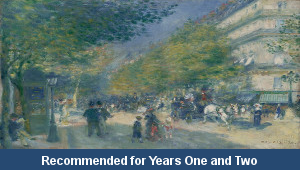Home > Key Stage One > Maths > Year One Planning > Term One
Lesson Five – Clown Shapes

This maths teaching pack for Key Stage One gets the children to identify, describe and group a range of different 2D shapes that can be used for some of the features on clown faces by their matching properties.
The class can explain and model how they can identify different geometric shapes by their matching properties including the number of sides and corners.
Download this teaching pack including a lesson plan, classroom activities and an interactive presentation to teach the children to identify, describe and group a range of different 2D shapes that can be used for some of the features on clown faces by their matching properties
Activities in this teaching pack include a set of cards to select and sort different 2D shapes into groups by their matching properties including their number of sides and corners and a template to record the matching design for a clown’s face using a selection of 2D shapes.
The interactive presentation gets the children to explain how they can identify a range of specific 2D shapes that can be seen in the design of a clown’s face by their matching properties including the number of sides and corners.
This lesson is part of a maths scheme of work to get the children to name, describe and compare a range of different 2D shapes by their matching properties by sorting and grouping shapes with the same geometric characteristics. There are teaching activities for shared learning, differentiated worksheets to support independent learning and interactive presentations to introduce concepts and key skills.
-

Islam
Explore and illustrate some of the different stories, beliefs and practices of the Islamic religion including special festivals and sacred texts
-

Farm Prints
Practise and demonstrate different techniques when printing a range of shapes and patterns that can reflect themes and ideas related to farming
-

Towns and Villages
Identify, describe and compare some of the changes to different buildings that have occurred in the school neighbourhood over time
-

Renoir
Explore the artwork style and painting techniques of a famous European artist to replicate when creating a picture of a school scene
